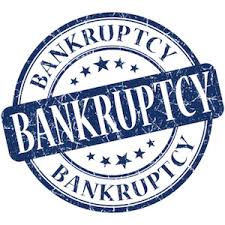Consumer debt
Should I Repay Charged Off Debt Sold to a Collection Agency?
I have a charge-off on my credit report because of a bankruptcy five years ago. If the company that wrote it off sells the debt to a collection agency, do I need to pay? The damage is done. It’s been on the report since the bankruptcy. I’m rebuilding and financially things have turned around again. Do I need to pay the collection agency? Thank you.
-Stan
What is Debt and What Is a Charge-off?
Like many people, Stan has had some problems with debt. And he’s not sure what his responsibilities and rights are. Let’s see if we can’t help him make sense of the situation. To begin, we’ll want to explore some underlying concepts. Once we understand them, we’ll be better able to answer Stan’s question.
The first concept to explore is the debt itself. Let’s walk through the steps of borrowing and debt together. A debt is money that we’ve agreed to pay someone in the future, either to a person or a company. Chances are that they gave us money or products now in return for a promise to pay later. It was probably agreed that we would pay interest on the money owed. Most often, we would also agreed to sign a credit card or installment loan agreement, which legally defined the financial responsibilities.
Sometimes a collection agency will buy a group of debts from the company that issued them- Company A. If our debt was among them, we no longer owe money to Company A, but now we owe the collection agency. But that does not affect the amount owed, the interest rate or any penalties that apply.
Next, let’s learn about a ‘charge-off’ or ‘write-off.’ The two terms refer to the same accounting procedure. At some point the lender decides that they’re unable to collect a debt. They’ll remove it from their accounts receivable. That affects their profitability and taxes, but it does not effect whether the debtor owes money to the company. A charged-off debt is still a valid debt. So even though our debt was ‘charged-off’, we’re still obligated to repay it.
How Does Bankruptcy Affect Debt and Collections?
Stan mentions that he’s been through a bankruptcy. He doesn’t say, but we’ll assume that it was Chapter 7 proceeding. People most commonly seek Chapter 7 bankruptcy because it it the simplest. People apply for bankruptcy to get a fresh financial start. They’re asking the court to rule that they are unable repay what they owe and to release them from some or all of their financial obligations.
Officially a bankruptcy “discharges” debts. What that means is that a debt included in the bankruptcy is no longer a debt. It is as if the debtor doesn’t owe the money any more. The law no longer requires him to repay the debt. Further, the bankruptcy order requires that the lender take no further action to try to collect it. That would include hiring lawyers or contacting the debtor via mail or phone. Unless there is legal action involving the discharge, it happens automatically with the bankruptcy.
A bankruptcy does not automatically include all debts. The debtor may choose to exclude some debts from the bankruptcy petition- perhaps debts owed to family members. Other debts are not eligible for protection, such as taxes, alimony and child support. The bankruptcy filing should be clear about the debts it includes and what debts it does not. Borrowers still owe debts not included in the bankruptcy, just like before.
Finally, we need to understand the basics of credit scoring. Payment history accounts for 35% of the score. So when Stan was late with his payments, that reduced his score. Turning the account over to a collection agency also lowered the score. And, finally, the bankruptcy and discharge would also effect his score.
Answers for Stan & What to Do Next
Now that we understand the process, let’s look at Stan’s question. He’s correct that the bankruptcy closed certain accounts. If the account he’s asking about was included in the bankruptcy, it is discharged. Stan should inform anyone attempting to collect that it has been discharged. And, that further attempts to collect it would require him to contact the court informing them of the attempt.
If Stan chooses, he can voluntarily repay a discharged debt, but he’s under no legal obligation. Credit reporting agencies won’t reveal exactly how they compute credit scores. But, it’s unlikely that repaying a discharged debt years after the fact would have much impact on his score.
The bankruptcy will appear on Stan’s credit report for 10 years. At this point, his best method for rebuilding his score is to show that he’s used credit responsibly since the bankruptcy. As long as the bankruptcy includes the charged off debt, he should be able to ignore any attempts at collection without fear of hurting his credit score.
Gary Foreman is a former financial planner and purchasing manager who founded The Dollar Stretcher.com website and newsletters. Gary is also a regular contributor to Talking Cents.
If you’re struggling to pay off debt, ACCC can help. Schedule a free credit counseling session with us today.






